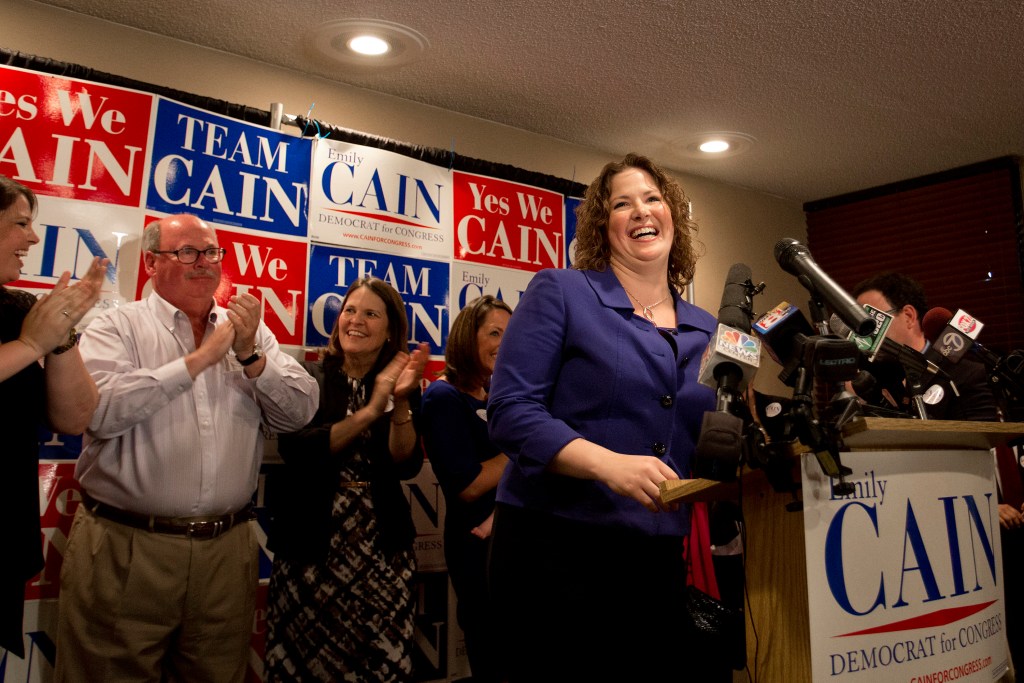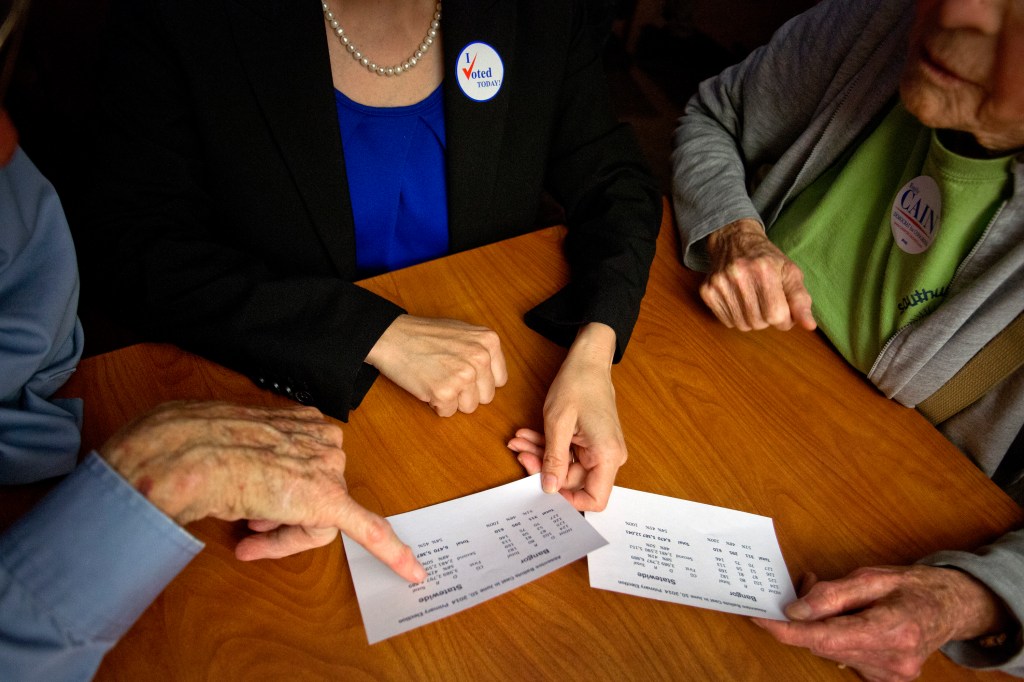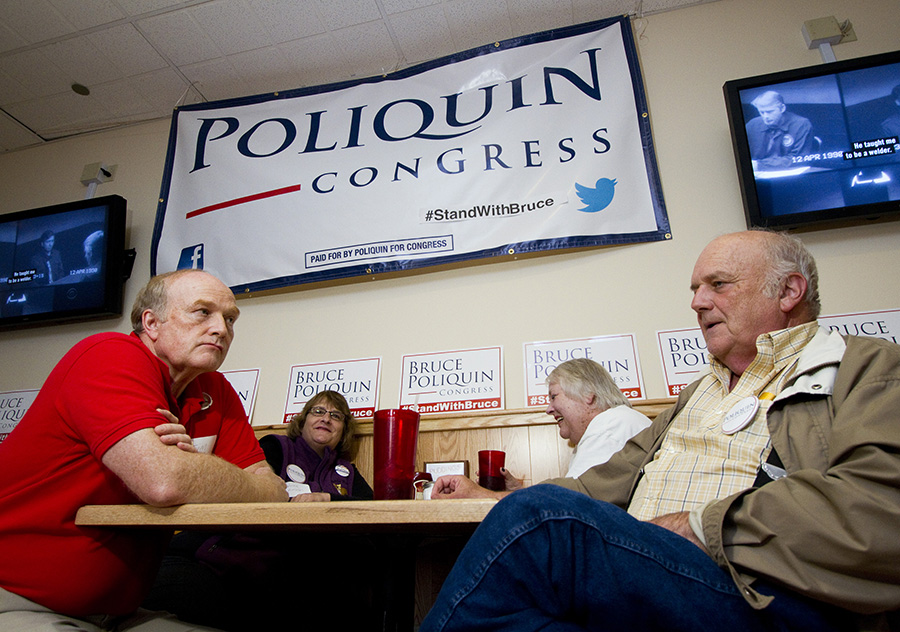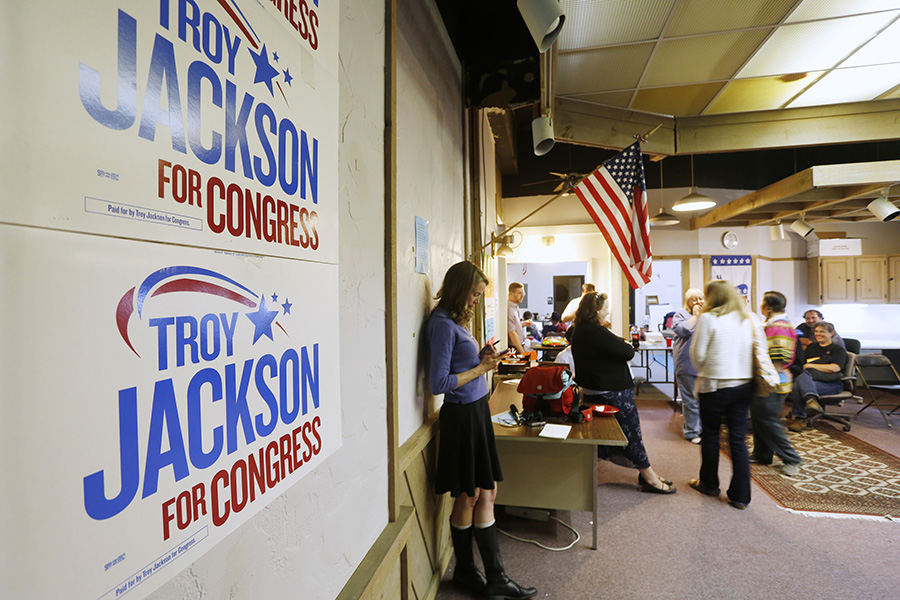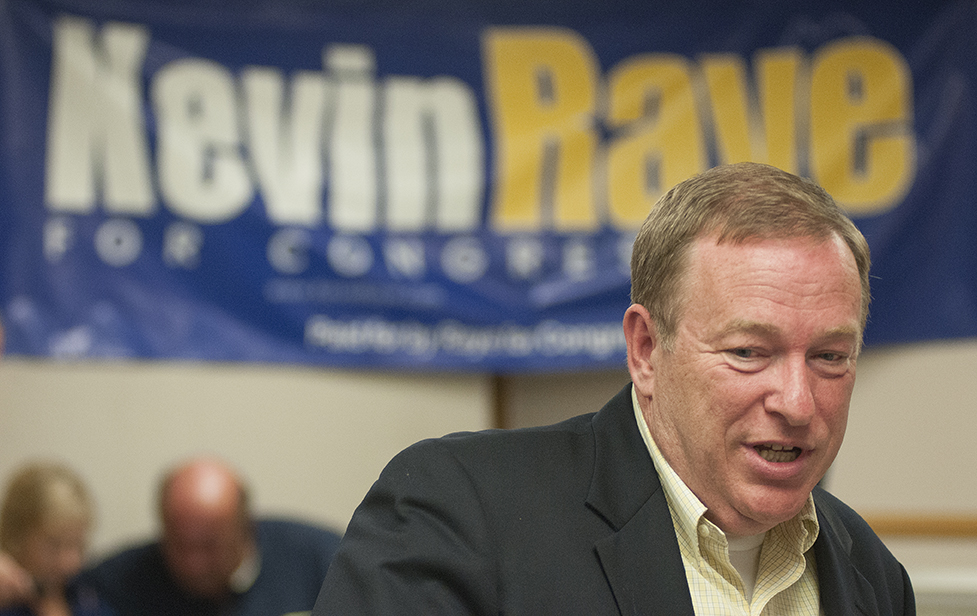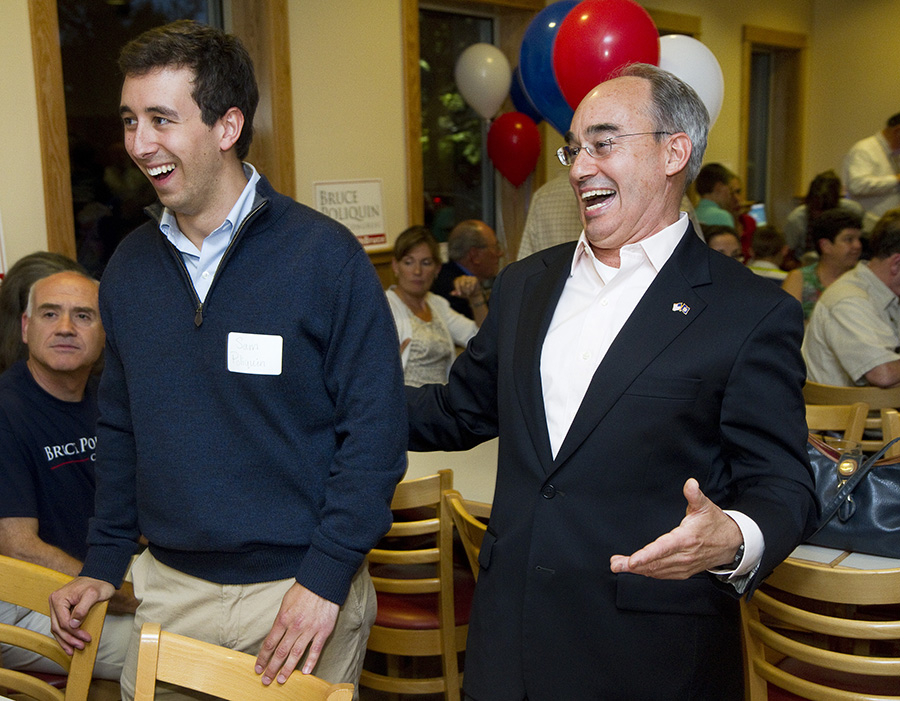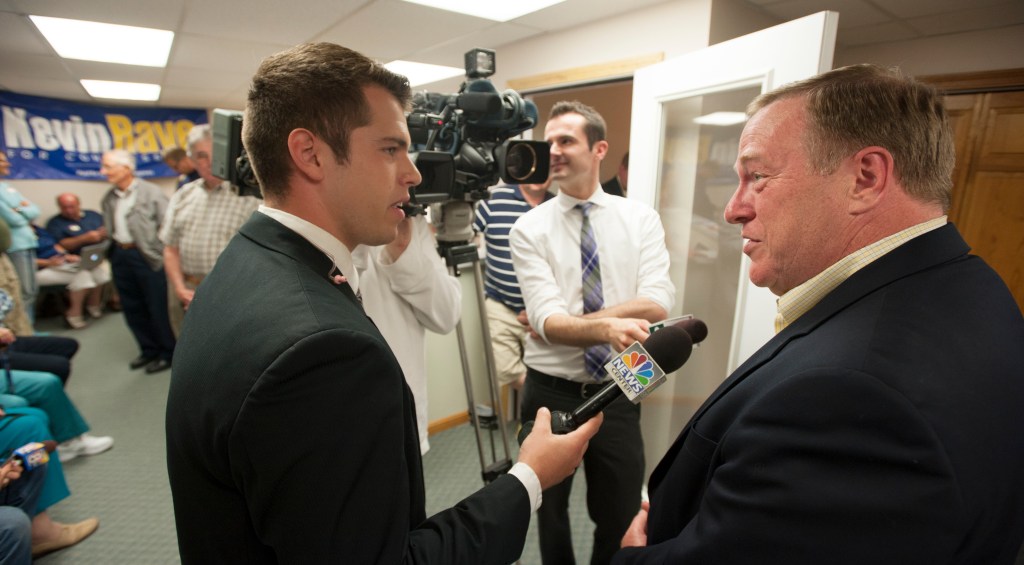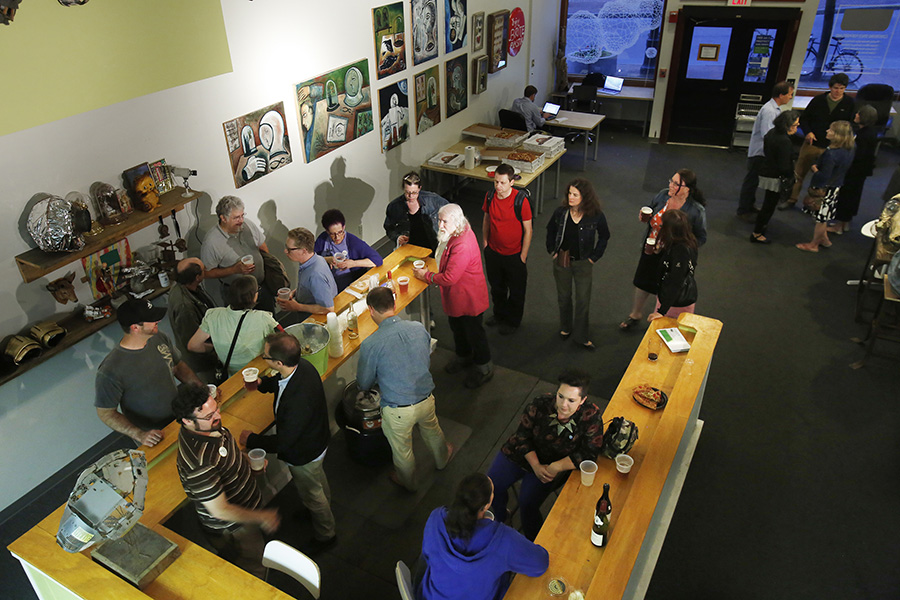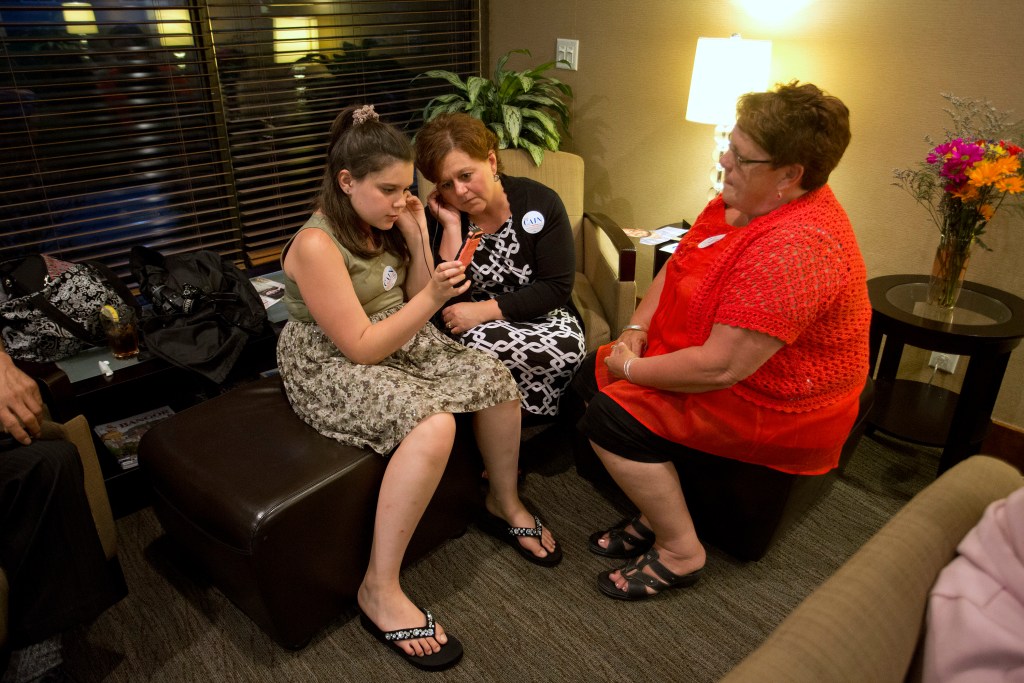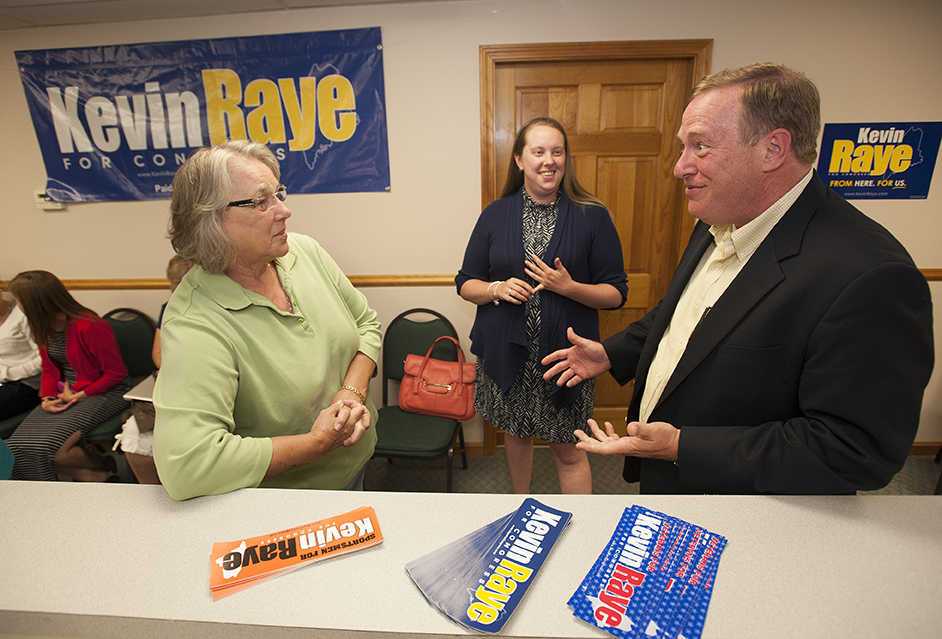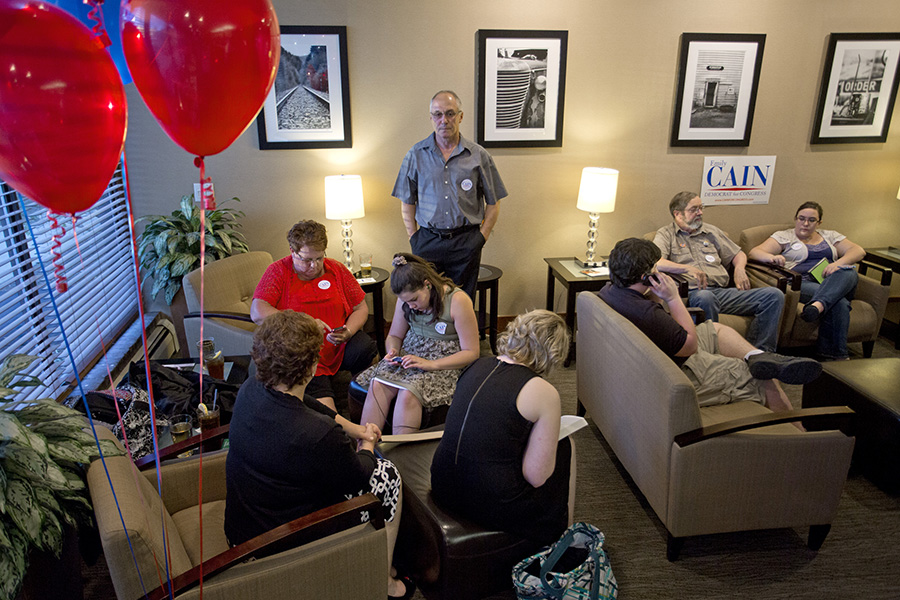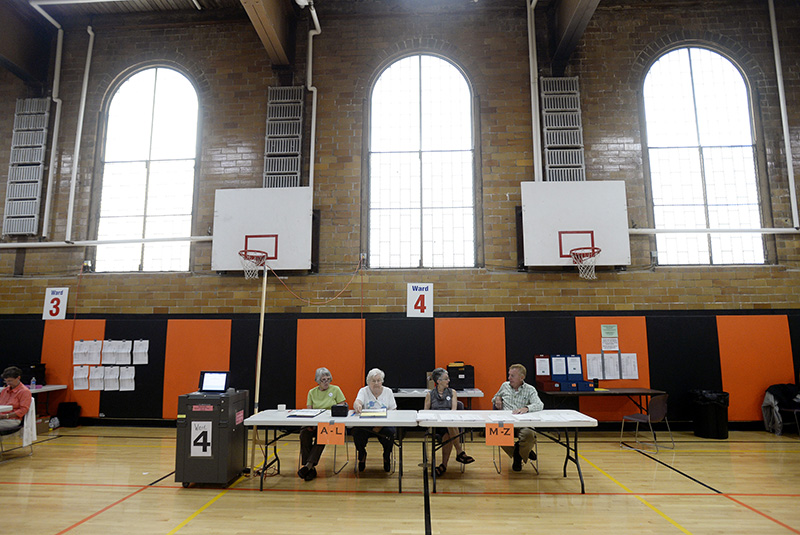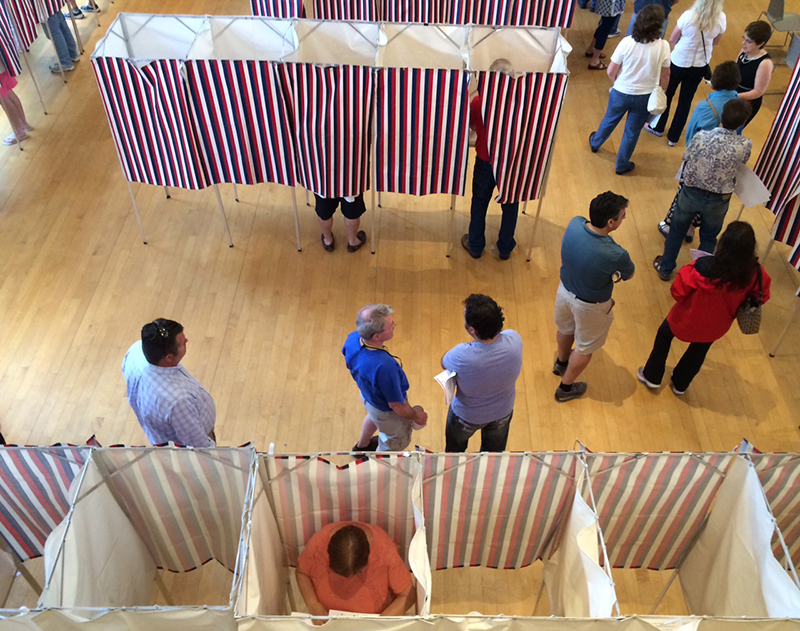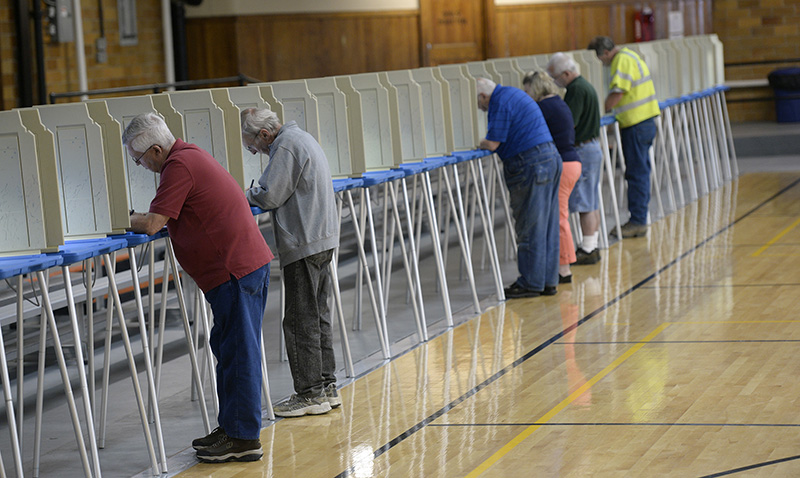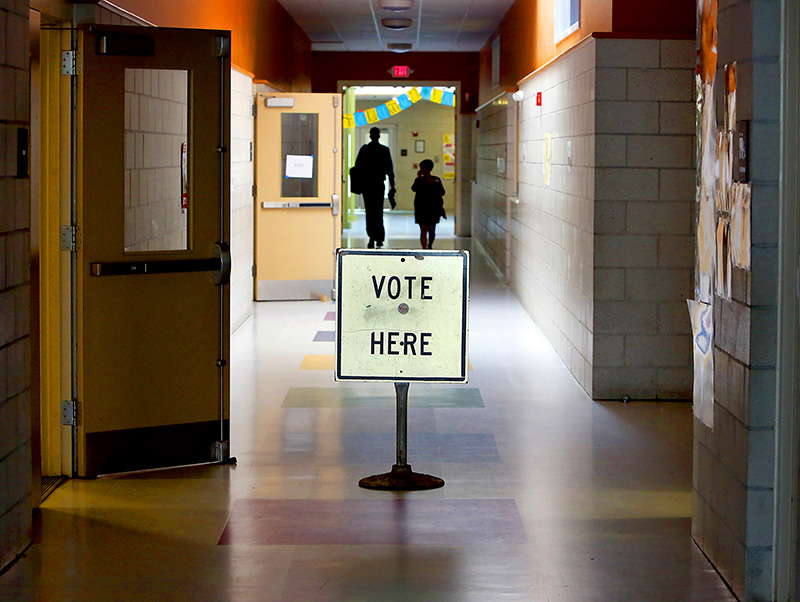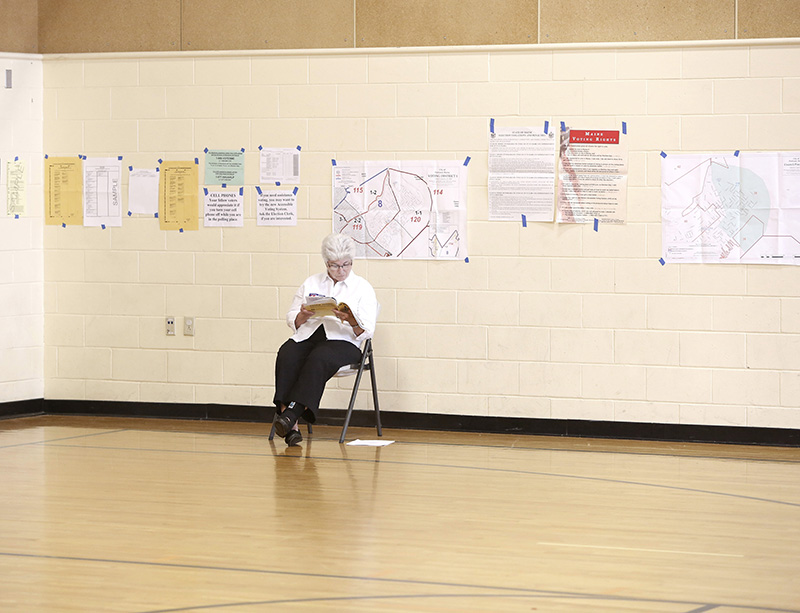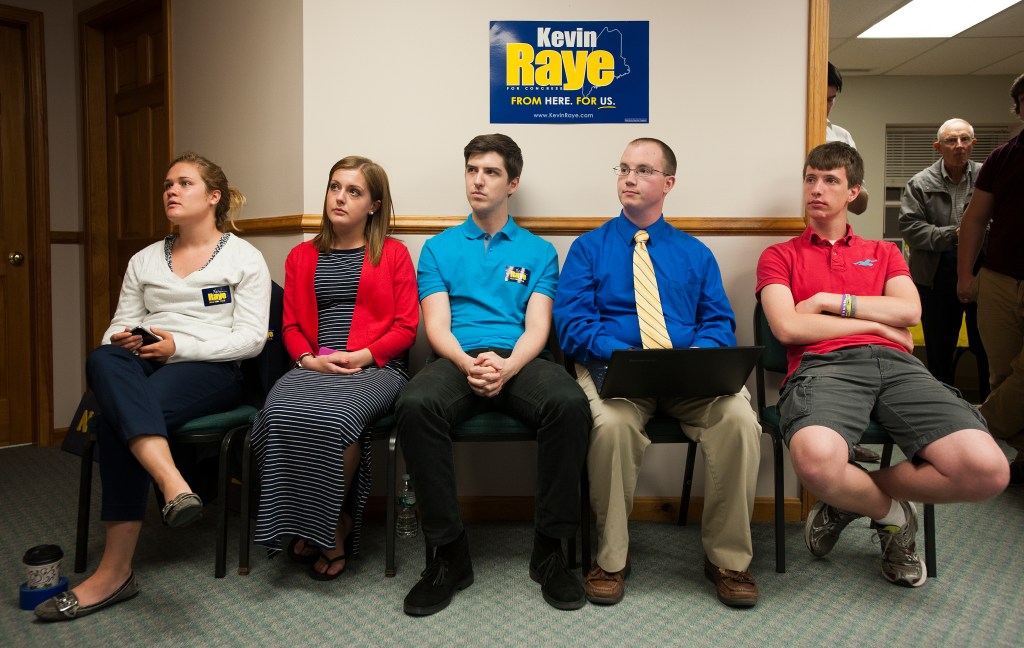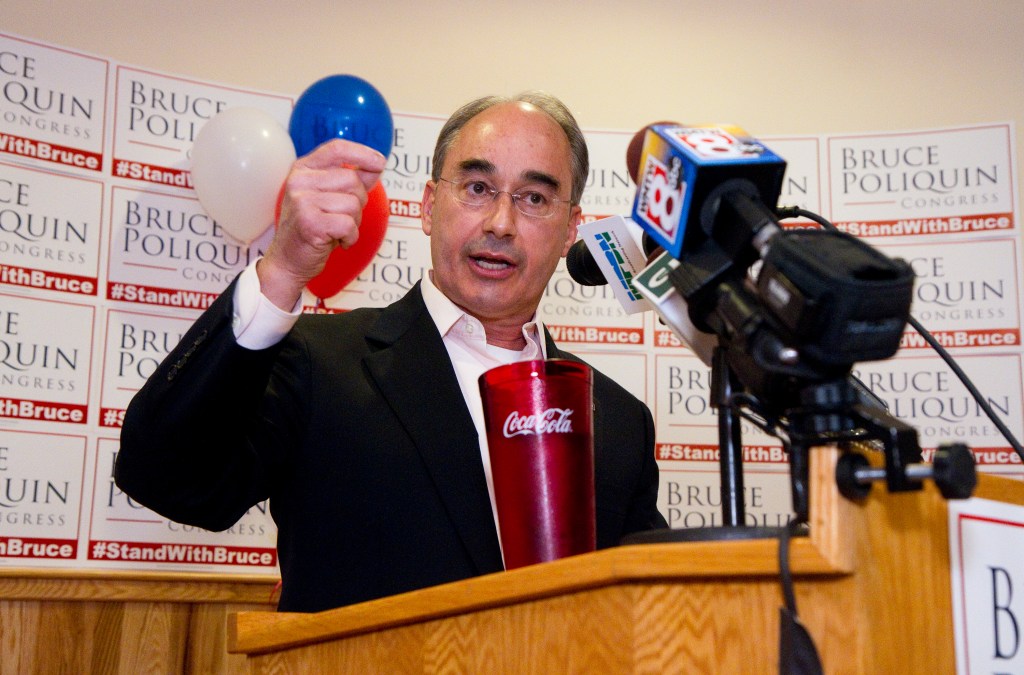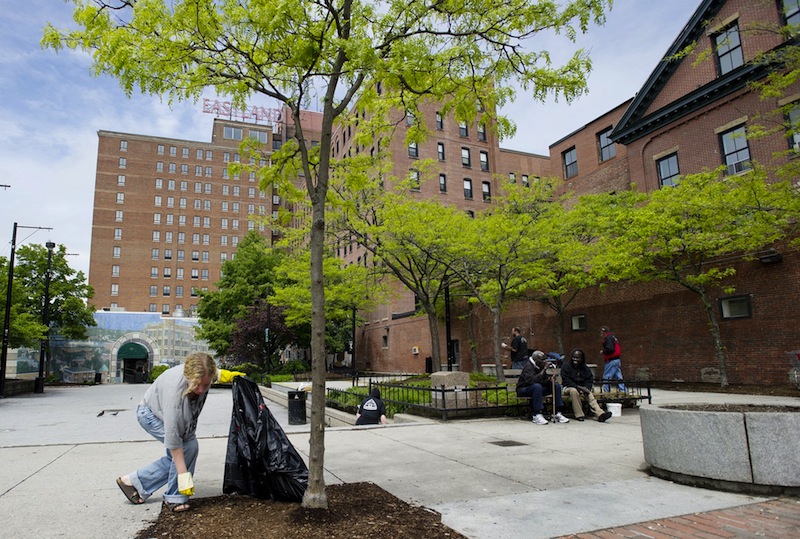Primary races for an open seat in Congress, unusually intense races for county sheriff and a long-running feud over Portland’s sale of a downtown plaza will draw Maine voters to the polls Tuesday.
The statewide primaries also feature more than two dozen contested seats in the Legislature and a host of local referendums on school budgets and spending proposals.
Polling places in most towns and cities will open between 6 a.m. and 8 a.m., and voting ends at 8 p.m. statewide. (To find your polling place, go to: www.maine.gov/sos/cec/elec/voter_info/index.html)
Secretary of State Matt Dunlap estimated that statewide turnout will be 13 to 15 percent of registered voters, with higher participation in communities with competitive races or high-profile ballot questions.
One of those communities is Portland, where the top issue is a ballot question that began as a fight over Congress Square Plaza but has broadened into a debate about residents’ say in future proposals to sell city-owned land.
The proposal would add 35 city-owned parcels to the list of protected properties in the Portland Land Bank and require that any sales of those properties get approval from at least eight of the nine city councilors. Voters would have the final say over sale proposals that get six or seven votes from city councilors.
Passage would block September’s council vote to sell two-thirds of Congress Square Plaza to RockBridge Capital, which renovated the Eastland Park Hotel into the Westin Portland Harborview Hotel. The company plans to build a one-story event center on the site and provide money to renovate the remaining, 4,800-square-foot portion.
On Monday, campaign workers and volunteers from both sides worked the phones, knocked on doors and handed out literature.
“We have a lot of volunteers and are continuing to call voters to tell them that a ‘yes’ vote is a vote to strengthen protections of Portland parks,” said Bree LaCasse of Protect Portland Parks, the political action committee leading the effort to pass Question 1.
Opposition has been led by Portland’s business community.
“What I am hearing an awful lot is that by trying to repeal the transaction with RockBridge, the referendum sends a message to the investment community throughout the country,” said Chris Hall, CEO of the Portland Regional Chamber. He said that message could undercut the city’s economic growth plan.
While several individuals have funded much of the Protect Portland Parks’ campaign, business groups have provided most of the funding for the opposition political action committee, Forward Portland. The chamber has donated $15,000 while RB Portland Building LLC – an offshoot of RockBridge Capital – has provided $20,000 to the “No on 1” campaign.
The campaign got more heated Monday night, when City Councilor David Marshall sent news outlets a copy of a letter he sent to City Manager Mark Rees accusing him of using his office, which is supposed to be non-political, to influence the outcome of Tuesday’s referendum.
A posting published May 29 under City News on the city’s website offers voters a point-by-point description of the ramifications of the vote. It says the points consist of data generated by city staff and others.
But Marshall said Rees is responsible for the website content, and the information and how it is presented is biased because it encourages a “no” vote.
“When you read it, it’s completely biased. It casts the ‘yes’ vote in a very negative light,” Marshall said.
Rees could not be reached for comment Monday night, but Mayor Michael Brennan said the posting was intended to be informative and was not composed solely by Rees. Several of the points contain links to background information that Brennan said may help voters decide.
Brennan called the timing of Marshall’s letter being released to the media “interesting, given that this fact sheet has been up for at least a week.”
City Clerk Katherine Jones was hesitant to make any predictions about voter turnout. By Monday afternoon, her office had received 863 absentee ballots, significantly more than the 548 Portland received for the June 2012 primaries, which featured two highly competitive U.S. Senate primaries.
Tuesday’s turnout is unlikely to match the roughly 15,000 people – 29 percent of the city’s registered voters – who turned out for the referendum in November on legalizing recreational use of marijuana in Portland, which passed with 67 percent of the vote.
Elsewhere in southern Maine, two county sheriff’s primaries have been unusually heated.
Cumberland County Sheriff Kevin Joyce was targeted recently with $100,000 in attack ads and mailers by a PAC supporting his Democratic challenger, retired state Trooper Michael Edes. PAC spending in a Maine sheriff primary is unusual, particularly six-figure spending.
Edes has been the target of a behind-the-scenes campaign to challenge his qualifications.
The three Democratic candidates for York County sheriff – Chief Deputy Sheriff William King Jr., South Berwick Police Chief Dana Lajoie and former Sheriff’s Deputy Paul Main – have attacked one another in another unusually intense race.
There are no Republican candidates in either sheriff’s race, and no declared independent candidates, so the Democratic primary winners will be unopposed in November.
Voters in Maine’s 2nd Congressional District, which covers northern, eastern and western Maine, will decide who will represent the major parties on the November ballot to replace Democratic Rep. Mike Michaud: Bruce Poliquin or Kevin Raye in the Republican primary, and Troy Jackson or Emily Cain in the Democratic primary.
The candidates have been waging six-figure spending campaigns, and November’s election is expected to be even more heated as the two parties seek the seat now held by Michaud, who is running for governor.
In Maine’s 1st Congressional District, the southern and coastal region, neither Democratic Rep. Chellie Pingree nor Republican challenger Isaac Misiuk faces any challengers in the primaries.
Send questions/comments to the editors.



